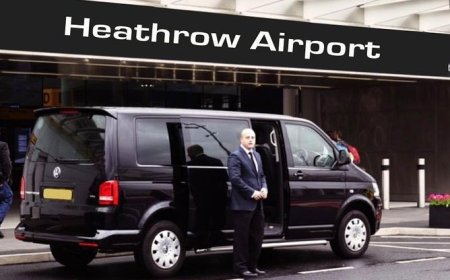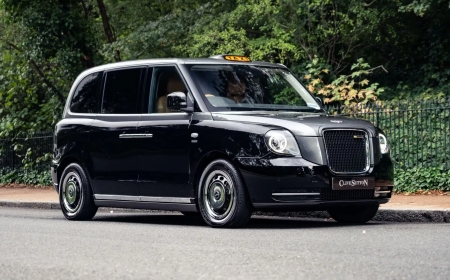Labelling and Packaging Rules for Foodstuff Trading License Holders in Dubai
Ensure compliance with food labelling laws when trading under a Dubai foodstuff license.

The food industry in Dubai is tightly regulated to ensure the safety and quality of products for consumers. If you are running or planning to start a business under a Foodstuff Trading License in Dubai, understanding the labelling and packaging rules is critical. Compliance with these rules not only protects consumers but also helps your business avoid fines, penalties, and the risk of losing your license.
This guide will help you understand the key labelling and packaging rules that apply to food products in Dubai, so your operations stay compliant and trusted in the marketplace.
What Is a Foodstuff Trading License in Dubai?
A Foodstuff Trading License in Dubai is a legal requirement for businesses that import, export, distribute, or trade food items in the emirate. This license is issued by the Dubai Department of Economic Development (DED) and is regulated by the Dubai Municipality's Food Safety Department.
With this license, businesses can deal in a wide range of food products such as:
-
Packaged food items
-
Fresh fruits and vegetables
-
Spices and condiments
-
Grains and pulses
-
Dairy products
-
Beverages and canned foods
However, holding a license is just the first step. Following the city's strict packaging and labelling regulations is essential for operating legally.
Why Labelling and Packaging Matter in Dubai's Food Industry
Dubai is a global hub for trade and tourism. Its food safety standards are aligned with international practices. Any food product made available to the public must be:
-
Safe to eat
-
Clearly labelled
-
Packaged hygienically
-
Traceable to its source
Incorrect labelling or poor packaging can lead to:
-
Product bans
-
Loss of consumer trust
-
Heavy fines
-
Shipment rejections at ports
That’s why businesses holding a Foodstuff Trading License in Dubai must take these rules seriously.
Regulatory Bodies Governing Food Labelling and Packaging
Several government bodies regulate food product compliance in Dubai. Key authorities include:
1. Dubai Municipality (Food Safety Department)
This department is responsible for enforcing food safety rules, including those for packaging and labelling. They inspect food facilities, review imported food products, and maintain quality control.
2. Emirates Authority for Standardization and Metrology (ESMA)
ESMA sets national standards related to food packaging materials and product labels.
3. Dubai Customs
They check imported food items to ensure all documentation and packaging meet UAE standards before allowing entry.
As a business operating under a Foodstuff Trading License in Dubai, it’s your responsibility to comply with all three.
Key Labelling Requirements for Food Products
Correct labelling helps ensure transparency and consumer safety. According to Dubai Municipality and ESMA guidelines, food labels must include the following:
1. Product Name
Clearly state the name of the food product in both Arabic and English.
Example: "Chickpeas – الحمص"
2. List of Ingredients
List all ingredients in descending order by weight, with any allergens highlighted.
Example: "Ingredients: Chickpeas, Salt, Water. Allergen: None"
3. Net Weight or Volume
Mention the accurate quantity (in grams, kilograms, or millilitres). Use metric units only.
Example: "Net Weight: 400g"
4. Country of Origin
State where the product was manufactured or packed.
Example: "Made in India"
5. Manufacturer and Distributor Details
Include the name and address of the producer, as well as your company details as the importer or distributor.
Example: "Distributed by ABC Foods LLC, Dubai, UAE"
6. Production and Expiry Dates
These must be printed clearly on the label in the day/month/year format. Stickers or handwritten dates are not acceptable.
Example:
-
Manufacturing Date: 15/01/2025
-
Expiry Date: 15/01/2026
7. Storage Conditions
Provide clear storage instructions.
Example: "Store in a cool, dry place. Refrigerate after opening."
8. Barcode
Products must have a scannable barcode for inventory and sales management.
9. Nutritional Information (for Processed Food)
Nutrition labels are required for processed foods and beverages. It should show calories, fats, sugar, sodium, and other essential values.
Language Requirements
All food labels must be bilingual:
-
Arabic is mandatory
-
English is also required
Arabic text must be correct, clear, and not smaller than the English version. Mistranslations can lead to product rejection.
Packaging Standards for Foodstuff in Dubai
Packaging not only protects food but also reflects your brand’s professionalism. Dubai follows strict packaging rules to ensure hygiene and product safety.
1. Use of Food-Grade Materials
Packaging materials must be food-safe and approved by ESMA. Use of recycled or hazardous materials is strictly prohibited.
2. Tamper-Proof Sealing
All packages must be sealed in a way that shows if the product has been tampered with. This includes:
-
Shrink wrapping
-
Sealed lids
-
Tamper-evident bands
3. Protection from Contamination
Packages must prevent the entry of dust, insects, or moisture. Perishable items must have extra layers of protection like vacuum sealing or oxygen absorbers.
4. Weight and Packaging Consistency
The actual product weight must match the stated weight on the label. Random inspections are often conducted at ports and retail outlets.
5. Eco-Friendly Practices
While not mandatory, using recyclable and biodegradable packaging materials is encouraged by Dubai Municipality and appreciated by customers.
Barcode and Label Registration Process
Before selling or importing a food product in Dubai, businesses must register it through:
1. FIRS (Food Import and Re-export System)
This Dubai Municipality portal is used to register all food items for import. Labels are reviewed and approved here before clearance is granted.
2. Montaji System
For packaged products like supplements or energy drinks, additional registration under Montaji (Dubai Municipality's product approval platform) may be needed.
Common Mistakes to Avoid
Many businesses make costly errors in packaging and labelling. Avoid these common pitfalls:
-
Incorrect or missing Arabic translation
-
Handwritten expiry dates
-
Listing inaccurate nutritional values
-
Using non-approved packaging material
-
Failing to register labels with Dubai Municipality
These mistakes can lead to rejection of shipments and financial losses. It’s wise to work with local consultants or product compliance experts to stay within the rules.
Role of Consultants in Ensuring Compliance
If you hold a Foodstuff Trading License in Dubai, keeping up with changing rules and documentation requirements can be challenging. Business setup and compliance consultants help by:
-
Reviewing product labels
-
Coordinating with Dubai Municipality
-
Assisting with food import approvals
-
Advising on barcode registration
-
Guiding packaging selection
Working with experts reduces compliance risks and speeds up the approval process for your products.
Periodic Inspection and Penalties
Dubai Municipality conducts surprise inspections at:
-
Warehouses
-
Grocery stores
-
Supermarkets
-
Ports
If violations are found, the penalties include:
-
Fines ranging from AED 1,000 to AED 100,000
-
Product withdrawal from shelves
-
Temporary license suspension
-
Permanent ban on non-compliant items
Being proactive in following labelling and packaging rules helps you avoid these consequences.
Final Checklist Before Selling or Importing Food Products
Before introducing any food item into the Dubai market, ensure you’ve covered these essentials:
✅ Label includes all required information in Arabic and English
✅ Packaging uses approved, food-grade materials
✅ Product is registered in FIRS or Montaji
✅ Expiry and production dates are printed, not handwritten
✅ Barcode is scannable and accurate
✅ Product complies with quantity and quality control norms
✅ You hold a valid Foodstuff Trading License in Dubai
Trusted Compliance Begins with Responsible Packaging
Running a food trading business in Dubai brings great potential. But it also comes with responsibilities. Following the strict labelling and packaging regulations helps protect consumers and positions your business as a professional and ethical player in the market.
Holding a Foodstuff Trading License in Dubai is not just about importing or distributing food. It’s about contributing to the safety and integrity of the local food supply. When your products are accurately labelled and properly packaged, you gain consumer trust and avoid costly setbacks.
If you're unsure about how to stay compliant, consider working with legal advisors or consultants who specialize in food industry regulations. With the right approach, your food business can thrive in Dubai’s highly competitive market.














































































